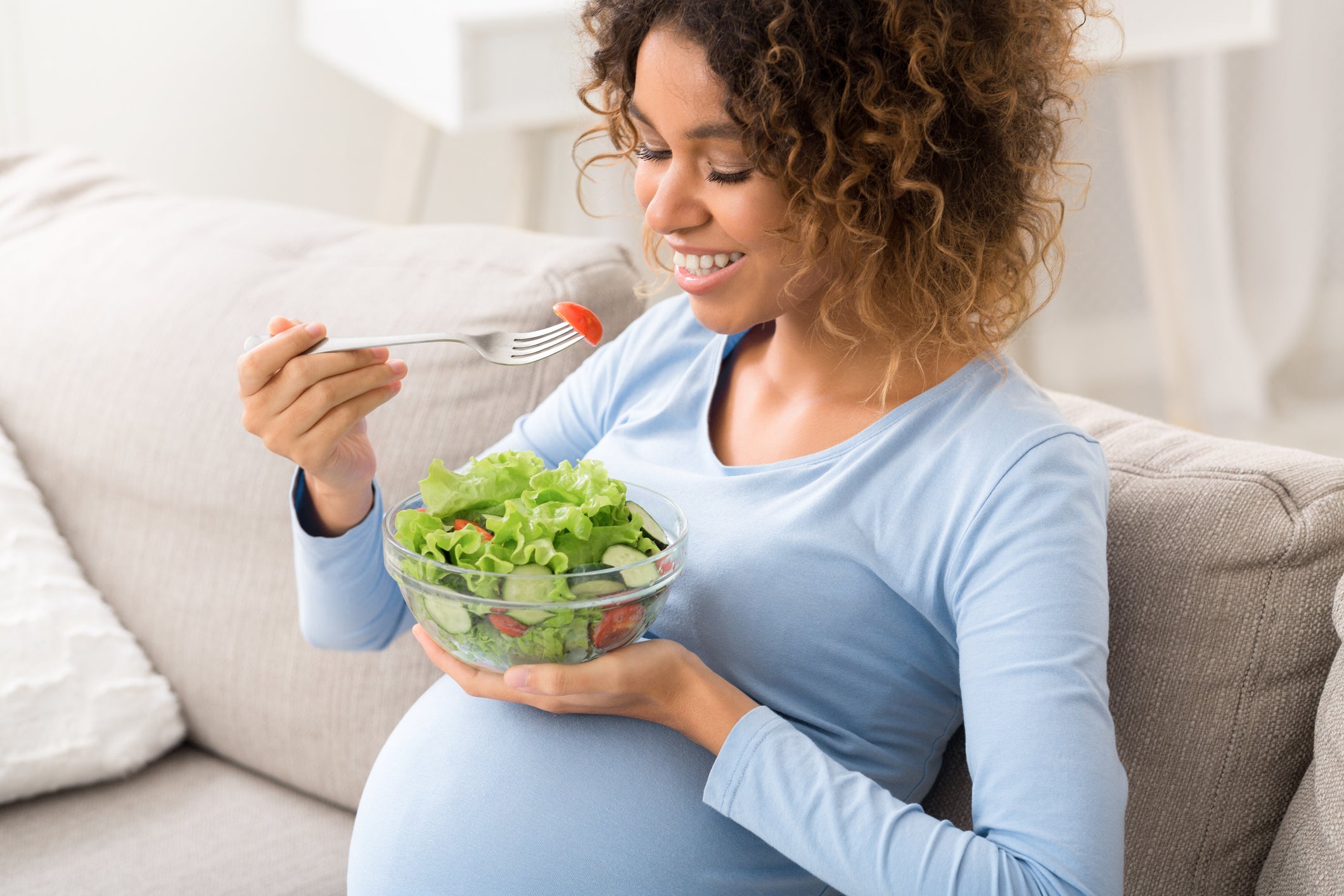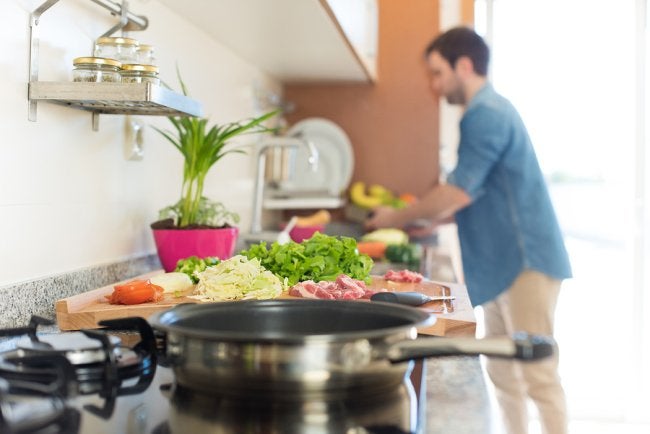-
Pregnancy Nutrition: Essential Foods for Mom and Baby’s Health

Pregnancy is an amazing time of life, when a woman grows an entire person inside her body. When you are first pregnant, the thought of eating may be overshadowed by nausea, but all throughout your pregnancy, taking care with your diet is important. Continue reading “Pregnancy Nutrition: Essential Foods for Mom and Baby’s Health”
-
The Best and Worst Foods During Pregnancy

Eating healthily is always good for your health, but when you’re expecting a baby, what you eat becomes even more important. Your doctor will have sound advice for you on what to eat and what to avoid, so make sure you get clarification about your diet during your prenatal appointments. In the meantime, here are some guidelines regarding the best and worst foods to eat during pregnancy.
Certain vitamins and minerals are at the top of the list. Folic acid, also known as the B vitamin folate, calcium, iodine, iron, vitamin D and DHA, an omega-3 fatty acid are all important for a healthy pregnancy. You should absolutely be taking a prenatal vitamin- again, get recommendations from your doctor- but most of your nutrition should come from your food. Especially if you’re feeling nauseous, nutrient-dense foods are the best way to effectively get the nutrition you need. Here are some foods to incorporate in your pregnancy diet:
- Lean protein: Lean cuts of meat are full of protein and iron. The amino acids in protein are the building blocks of cells, and high-protein foods can help keep you from feeling hungry by stabilizing your blood sugar. Iron helps build your baby’s red blood cells while supporting yours. Not a meat eater? Lentils are an excellent vegetarian protein source, with 17 grams of protein and 7 milligrams of iron. They’re also rich in the folate, which is crucial for your baby’s developing brain and nervous system. Edamame is also excellent, with 18 grams of protein, 100 milligrams of calcium, 3.5 milligrams of iron, and 482 micrograms of folate. Eggs are a good source of protein, and they also provide a hefty serving of vitamin D, which helps the body absorb calcium and may reduce the risk of gestational diabetes, preeclampsia, and low birth weight.
- Dairy: Dairy provides calcium, vital for your baby’s bones. Low-fat milk is good, but yogurt is even better. It’s got as much calcium as milk, along with protein, folate, and active cultures, which can help prevent both stomach upset and yeast infections. Choose plain yogurt with a drizzle of honey or fresh fruit, put yogurt in your smoothies, or layer it with granola and fruit for a parfait.
- Healthy fats: Cold water fish, avocado, and nuts all contain fats that support a healthy pregnancy. Fish like wild salmon have DHA omega-3s, essential for the development of your baby’s eyes and brain. Avocado has healthy monounsaturated fats, which help your body absorb vitamins, along with folate and B6, which is good for your baby’s brain and may help ease morning sickness. Nuts are packed with nutrients, including magnesium, zinc, potassium, vitamin E, protein, fiber, and healthy fats. Reach for walnuts to get omega-3 fatty acids, go with almonds for calcium, and peanuts for folate.
- Colorful fruits and vegetables: The beta-carotene in carrots is converted in the body to vitamin A. Red bell peppers provide both vitamin A and vitamin C, along with healthy fiber. Sweet potato is another powerhouse, with 400 percent of the vitamin A you need daily, and kale is a superfood with vitamins A, C, E, and K, as well as folate, iron, calcium, and fiber. Can’t tolerate vegetables? You can get your vitamins A and C from mangoes, and your potassium from bananas. Bananas are a source of quick energy that’s easy to digest even if you’re queasy.
- Dried fruit: For a quick snack, you can’t beat dried figs, dates, prunes, and apricots. Not only will they satisfy your sweet tooth and provide an energy boost, but they’re full of nutrients like fiber, iron, calcium, potassium, and antioxidants.
- Whole grains: Oats and quinoa are particularly good for pregnancy, providing fiber and magnesium to help both mother and baby. Quinoa also contains 8 grams of protein and nearly 3 grams of iron, along with calcium, potassium, and zinc.
There are also some foods you should avoid when pregnant. Steer clear of high-mercury seafood, especially swordfish, shark, king mackerel, and tilefish. Don’t drink unpasteurized milk or juices or eat unpasteurized soft cheeses, because they can contain harmful bacteria. Refrigerated deli meats and deli salads can also contain bacteria, so don’t eat these unless they’re heated. Avoid raw or undercooked meat, fish, poultry, shellfish, or eggs, even in sauces or raw cookie dough, and don’t eat raw sprouts or unwashed produce. Don’t eat unripe papaya: it can trigger contractions. Avoid excess salt and sugar, processed foods, and trans fats, and limit your caffeine consumption to just one cup of drip coffee per day or less. Eating nutrient-dense whole foods is the best plan for your pregnancy diet.
At the Center for Vasectomy Reversal, we love helping people start families with healthy pregnancies. Under the direction of Dr. Joshua Green, our team provides state-of-the-art treatment for men who need a reversal of their vasectomy or have other fertility concerns. To learn more, contact us through our website or call 941-894-6428.
-
Healthy Food Ideas for Your Pregnant Partner

A healthy diet is always important, but it’s never more important than during pregnancy. When the foods eaten are nourishing a growing baby, they must be nutrient dense. Sometimes, the mom-to-be doesn’t have much of an appetite, and that’s even more reason to make every bite count. While it’s ok for her to sometimes treat herself to yummy, empty calories, her diet needs to be loaded with foods that pack a nutritional punch.
- Dairy products provide protein and calcium. Yogurt is a great dairy option, as long as it’s not full of sugar. Try plain yogurt with a drizzle of honey or fresh fruit, or incorporate yogurt into dips and dressings.
- Legumes, especially lentils, are a great source of protein and other nutrients. They contain folate, iron, and fiber, among other nutrients, and can be eaten in salads, soups, and stews.
- Sweet potatoes are amazingly nutritious. One sweet potato has more than 400 percent of the daily requirement for vitamin A, which is crucial in the first trimester. They’re easy to eat, baked or sliced and roasted into oven fries.
- Salmon, especially wild salmon, is one of the best foods to eat during pregnancy. It’s got omega-3 fatty acids and vitamin D, and it’s a safe seafood choice for pregnancy. Roasted salmon filets over greens or rice, served with a sweet potato and steamed vegetables, make the perfect meal.
- Eggs are inexpensive, easy to cook, and packed with nutrients. They’re a good source of protein, and contain choline, which helps brain development, and vitamin D. There are tons of ways to eat eggs, just make sure you cook them thoroughly.
- Lean meat provides protein and iron. It helps the baby grow and keeps the mom from feeling hungry. Small amounts are sufficient, so toss meat into soups, noodle dishes and salads.
- Berries are delicious and nutritious. They’ve got carbs, vitamin C and other vitamins, fiber, and antioxidants, and they help increase water intake. Eat them plain or toss them in smoothies or salads!
- Broccoli and leafy greens contain many important nutrients. Kale, for example, has folate, iron, vitamins C, A, E, and K, calcium, and fiber. Toss greens into a smoothie, cook them with pasta, pile them on a sandwich, or scramble them up with some eggs.
- Avocadoes are creamy, rich, and are an important source of monounsaturated fatty acids. They’ve also got folate, vitamin B6, fiber, and potassium. They’re good for leg cramps, promote healthy tissue and brain growth in the developing baby, and may even ease morning sickness. They’re great in guacamole, sandwiches, salads, omelets, and on their own.
At the Center for Vasectomy Reversal, we love helping couples grow their happy, healthy families. Under the direction of Dr. Joshua Green, our team provides state-of-the-art treatment for men who need a reversal of their vasectomy or have other fertility concerns. To learn more, contact us through our website, or call 941-894-6428 for a free consultation.
-
Nutrition Tips for Your Recovery from a Vasectomy Reversal

When you’re recovering from your vasectomy reversal , in addition to following your surgeon’s instructions, it is important to make smart food decisions that support your recovery. As with any surgery, it is important to give your body the nutrients it needs to heal so you can get back on your feet faster. Keep these guidelines in mind for your post-surgery diet.
Choose High-Fiber Foods
After surgery, constipation is a frequent problem, thanks to the pain medication you’re likely to be taking. In addition to drinking plenty of water, eat foods with a high fiber content to reduce the risk of constipation. Whole grain breads and cereals, vegetables, and fruits are all good choices that will help you get the right amount of fiber during your recovery. Reducing your intake of foods that increase the risk of constipation, like dairy products and processed foods, can also help.
Pick Lean Proteins
Protein is an important part of recovering from surgery, since it is a building block for tissue repair. Lean protein sources will give you the nutrients you need without the saturated fats that can contribute to constipation. Chicken, fish, turkey and pork are all good choices. If you don’t eat meat, nuts, tofu, and beans will give you the nutrients you need. If your appetite is weak after surgery, consider adding protein powder to smoothies, which may be more appealing than a large meal.
Fill Up on Whole Grains
Whole grains contain nutrients that will give you energy during your surgery recovery, as well as fiber that will reduce constipation. Pick whole grain bread, wheat pasta, and brown rice instead of the white, processed varieties of these foods as you recuperate from your vasectomy reversal.
Dr. Green and his team at the Center for Vasectomy Reversal in Sarasota are available to answer all of your questions about preparing for your surgery and recovering from your vasectomy reversal procedure . Schedule a consultation today by calling (941) 894-6428.
Recent Posts
Popular Posts
categories
- Uncategorized
- Sperm Retrieval
- vasectomy reversal
- Emergency
- Dr. Green
- sperm count
- fertility
- male infertility
- MESA
- medical care
- low sperm count
- IVF
- male fertility testing
- anesthesia
- pregnancy
- sperm aspiration
- semen analysis
- post-vasectomy pain syndrome
- infertility
- VE
- anti-sperm antibodies
- older dad
- general anesthesia
- gender reveal party
- post-operative infections
- baby name
- parent
- baby's first year
- fertilization process
- spinal anesthesia
- ACS Fellow
- nutrition tips
- concierge-level care
- fertility planning app
- azoospermia
- out-of-town patients
- V-V
- post-vasectomy reversal
- conceiving
- vasectomy
- vasoepididymostomy
- smoking
- sperm quality
- baby registry
- infographic
- surgical care
- surgical consultation process
- prostate cancer
- baby gender
- family time
- COVID
- Baby Shower
- Child Care
- Halloween Costume Ideas for Babies
- Halloween
- Halloween Safety Tips
- Celebrity Infertility Spotlight
- Postpartum
- testosterone
- Father's Day
- Father
- Men's Health
- Thanksgiving
- Pregnancy Announcement
- Parenting Tips
- Sperm
